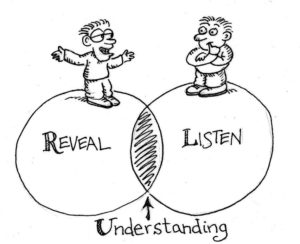Everyone’s goal is to be successful. There are little changes that you can make each day that can have a big impact on your success. Three things that are not taught in a college lecture hall, but that will make you stand out among your coworkers and be successful are:
1. Being on Time
Being on time is so important no matter what it’s for. Punctuality is great for work, attending a sporting event, or meeting friends for dinner. When you’re on time it shows that you care and that you’re putting forth effort. When a you’re late, you’re holding up others and showing that you don’t respect other’s time. Your being late simply makes everyone else late.
In my opinion, if you’re not 5 minutes early, you’re late.
2. Having a Positive Attitude
Having a positive attitude changes your whole outlook on life and your optimism affects those around you. When you’re positive, it makes others around you more positive too. Of course, the opposite is true as well. When you’re negative it makes others around you more negative and brings down the mood.
My dad is one of the most positive people that I know, and even though positivity bugs me at times, in the end I am thankful for it. He tells his employees at work all of the time that Monday is his favorite day of the week. As we all know, Monday’s are usually peoples least favorite day of the week, but going into a Monday with a positive attitude helps the day go better.
3. Staying out of office politics
Avoiding office politics is another important thing you need to try and do because once you’re involved in them, it’s hard to get out. You should only worry about yourself, the work you’re doing, and the things that are in your control.
Yes, it can be frustrating when you feel that you’re putting in more effort and working harder than your co-worker in the cube next to you who is always playing on their phone; but you can’t worry about that and let it bother you. You need to just keep doing your work and in the end you will be the one rewarded.
You Will Be Recognized
If a you can consistently do these three things everyday, YOU will be the one promoted instead of the coworker that shows up five minutes late everyday. YOU will get the next important project instead of the person that is always negative and doesn’t want to be at work. Lastly, YOU will be the one that’s promoted over the worker that spends most of their time online shopping.
Even though these may seem like small things, in the long run they will help get you recognized and YOU will be rewarded for it.
 Mallory Armbrustmacher graduated from Grand Valley State University in 2017 with a BA in Human Resource Management. She is an HR Generalist with the State of Michigan, Talent and Economic Development Department Human Resource Office, where she coordinates ADA Reasonable Accommodations and Ergonomic Assessments. In addition, she takes the lead on various special projects, conducts new employee orientations, processes payroll, and assists in labor relations, classifications, and selection. She is currently studying for the SHRM-CP exam, but also loves spending time with her family and friends, playing games, and cooking.
Mallory Armbrustmacher graduated from Grand Valley State University in 2017 with a BA in Human Resource Management. She is an HR Generalist with the State of Michigan, Talent and Economic Development Department Human Resource Office, where she coordinates ADA Reasonable Accommodations and Ergonomic Assessments. In addition, she takes the lead on various special projects, conducts new employee orientations, processes payroll, and assists in labor relations, classifications, and selection. She is currently studying for the SHRM-CP exam, but also loves spending time with her family and friends, playing games, and cooking.








